Today we kick off a new series of articles by Billy Crawford. Over the next few weeks, while we wait to see when cricket can resume, Billy will be writing a series of pen portraits of the players who have defined each cricketing summer since since he first fell in love with the game back in 1999. The first one focuses on Nasser Hussain. Enjoy and stay safe. From Billy and James.
English cricket was at its lowest ebb in the Summer of 1999. Not only had the side crashed out of their own World Cup before the official song was even released but defeat to New Zealand in the summer’s Test series meant England were unofficially ranked as the worst team in the world. In this moment of humiliation, one man strode onto the Oval balcony to face the cacophony of boos from the South London crowd. That man was Nasser Hussain and he was about to grab English cricket by the scruff of its neck and drag it away from the abyss.
Alec Stewart had lost his job as captain after the World Cup debacle and, as new skipper, Hussain was tasked with taking over a ship that, if not exactly sinking, had certainly taken on a great deal of water. Immediately he looked to put his own stamp on things. Perceived troublemakers under the previous regime, Andy Caddick and Phil Tufnell, were welcomed back to the fold.
The first Test of the summer at Edgbaston provided some early promise as nightwatchman Alex Tudor’s 99* not out and Andy Caddick’s 5 wickets led England to a stirring victory. It proved to be a false dawn , however, as old frailties re-emerged in demoralising defeats at Lords and The Oval.
Hussain’s tenure is, perhaps, not as fondly recalled as those of the men who followed him, and his record pails compared with those of Michael Vaughan and Andrew Strauss. Perhaps this is due to his abysmal record against Australia but it may also be as a result of his confrontational and aggressive approach with players. Many of his former charges record being on the receiving end of one of the captain’s infamous rounds lashings. Some, such as Matthew Hoggard, recall him screaming in their faces over the smallest of issues.
This approach could be counterproductive much of the time, particularly with younger players who often found the lack of support challenging. Marcus Trescothick remembers Hussain not even speaking to him for the entirety of his debut Test in 2000. It certainly contrasts with Michael Vaughan’s arm round the shoulder approach to new arrivals.
The key difference with Nasser Hussain, however, is the team that he inherited. It was a team that had grown used to failure with players that seemed to have developed an almost fatalistic attitude to defeat. The battle scars of numerous thrashings at the hands of Australia and the West Indies were visible on many of them. It was a team that needed a man who would not accept failure, a man who would root out mediocrity and call out slack standards. A man who would force his team to stand face to face with their opponents. It was a team that needed Nasser Hussain.
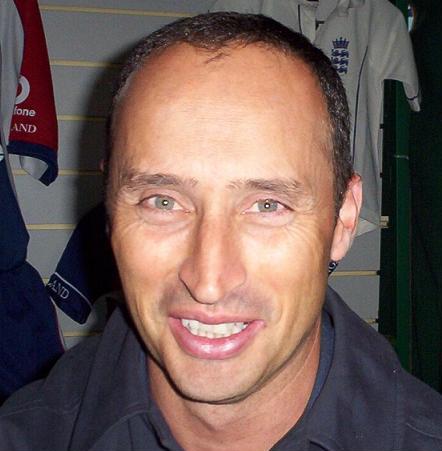
The perfect example of the new captain’s attitude came at Lord’s in the summer of 2000 against the West Indies. Having already lost the first Test, England had been bowled out for 134 in their first innings to concede a 133 run deficit. Many England teams of the recent past would have folded but Hussain’s response typified his never say die attitude. “Right lads!” he told his group of players in the dressing room. “If we’re going to go down, we’re going to go down our way! Lets pepper them”. Andy Caddick and Darren Gough proceeded to do exactly that, as the West Indies we’re bowled out for 54 in a hail of short balls before England completed a famous victory the following day.
The team went on to complete a 3-1 series victory and Nasser Hussain’s legacy as the first England captain to win the Wisden Trophy in 31 years was complete. His reaction as the final wicket was taken at The Oval was not one of joy or exultation but a simple dropping to his knees, hands on head, seemingly overcome by exhaustion. The intensity of the man seemed to overwhelm him. After all, although the pressure he put on other players was immense, it was nothing compared to the pressure that he put on himself.
In the early days, this high intensity approach was just what England needed to drive the team out of the wilderness years. The victory over the West Indies was followed by back-to-back series wins on the subcontinent as both Pakistan and Sri Lanka fell victim to this new feistier England team, an achievement never bettered since. Pakistan were memorably defeated in almost total darkness at Karachi in the sort of backs to the wall, against the odds victory that the captain would have derived great pride from.
As the years went by, though, the siege mentality that Hussain liked to create around his team started to take it’s toll. At times he seemed to be burdening his players with unnecessary pressure which stifled their natural joy in playing cricket. One wished that he could, just once in a while, take the hand break off and let his team express themselves but this was never his way.
His fierce competitiveness and desire to win could even be shown in his other interests. A lifelong Leeds United fan, he switched to supporting Arsenal in 2004 as he “did not want to take my kids to Championship football”.
Two heavy defeats at the hands of Steve Waugh’s all-conquering Australians have coloured people’s views of Hussain’s team and were, more than anything, his undoing. His decision to bowl first at Brisbane in 2002-03 has gone down in infamy. Coming back from that series, England were beaten down and jaded. The Zimbabwe crisis during the 2003 World Cup also took its toll on the captain and his men. For days, the England players had been locked away in their hotel rooms, agonising over whether to play a match in Robert Mugabe’s country, from both a safety and a moral perspective. In the end, England were the only team that refused to go, a decision which ultimately cost them their place in the knock out stages .
As often happens when a captain has been in situ for a long time, players no longer seemed to be responding to Hussain’s voice. Michael Vaughan had taken seamlessly to the one day captaincy and the younger players, in particular, were responding to a more relaxed style of leadership. England’s Test captain felt he had lost his grip on the team and his powers were fading.
The first Test against South Africa that summer was particularly dismal. As Nasser Hussain sat in the dressing room during another rain break, as England tried to recover from Graeme Smith’s crushing innings of 277, he knew it was all over. That evening, after a flurry of phone calls to friends and family to gather advice, he made his decision. The team needed a new voice. The following morning he went and found Michael Vaughan and, according to the new captain’s autobiography, offered him the job as Vaughan was finishing off a bacon sandwich.
In such inauspicious circumstances, the baton of leadership was passed from one man to the other. Michael Vaughan would go on to scale far greater heights than his predecessor but he would do so standing on the foundations that the Essex man had built.
Despite his faults, English cricket owes a great debt of gratitude to Nasser Hussain. Without his hard work and perseverance doing what was, at times, a thankless task, the successes that followed may never have materialised.
Billy Crawford



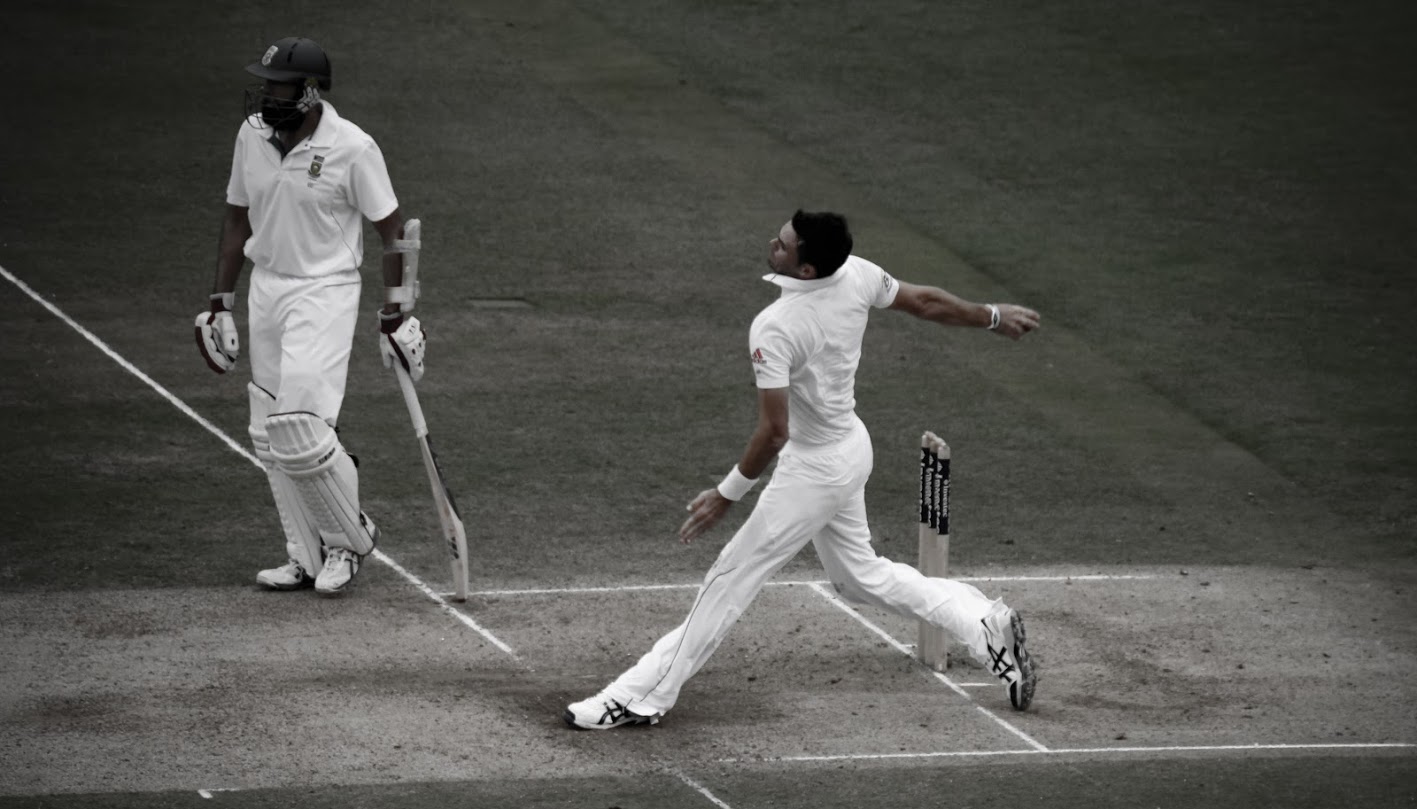
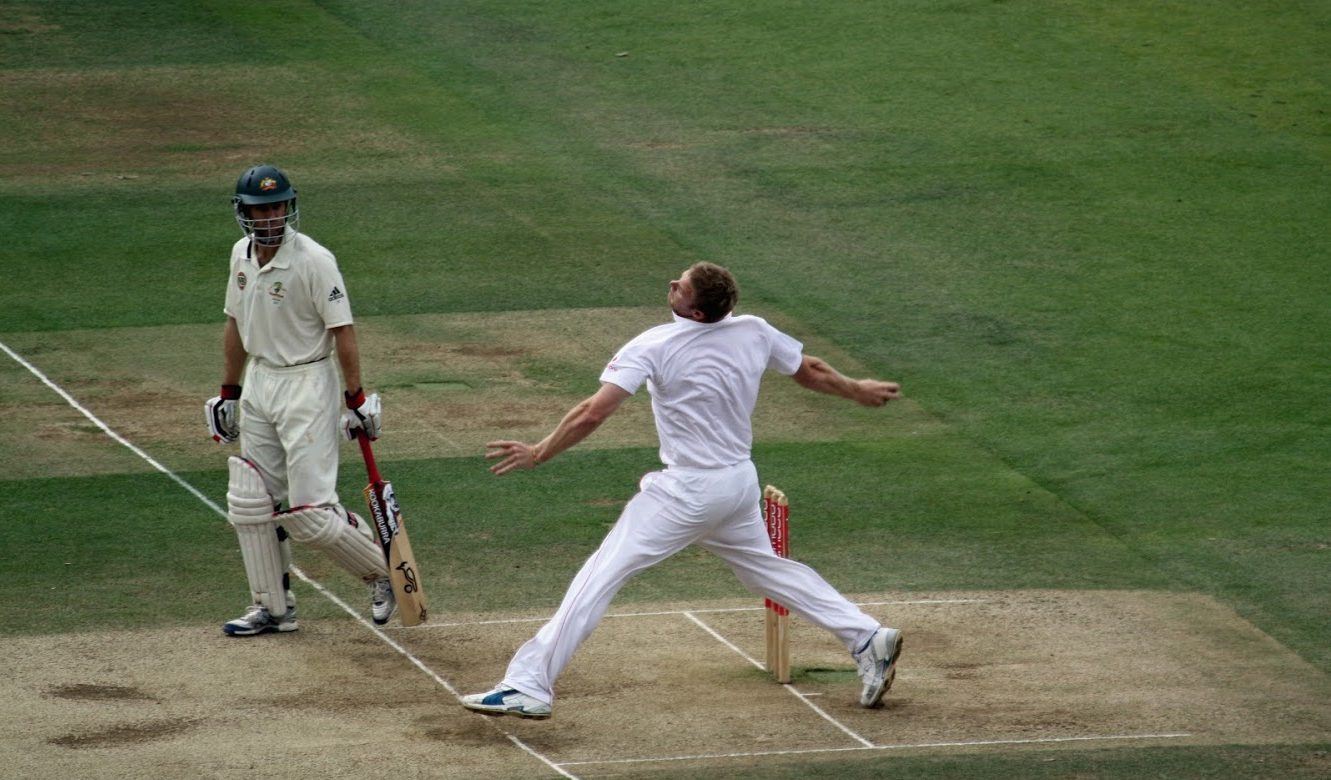
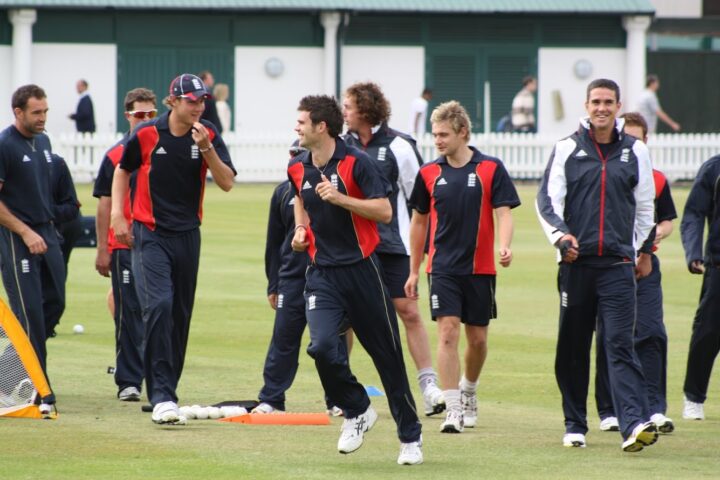
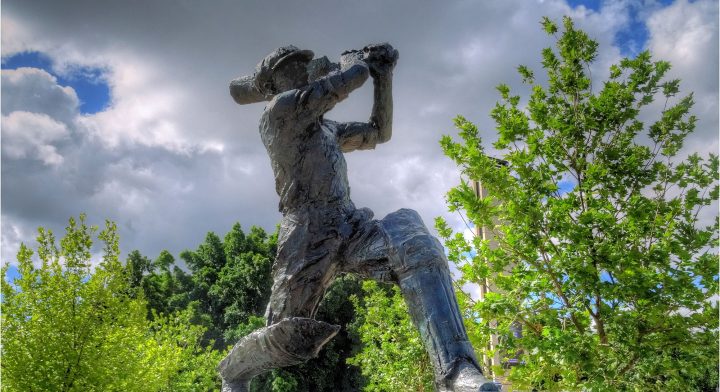


Nasser Hussain’s contribution is captain was indeed vital to the future development of the England team. Also, like so many of his era he had suffered from being messed around by the selectors, being dropped and then reinstated a number of times in his early years.
Hussain was not badly treated by the selectors early in his career.
He played 3 Tests on the 1990 WI tour. The one Test he missed was because he injured himself playing tennis. He didn’t make a fifty in 5 innings and can hardly complain about being dropped. He had a major technical fault at that time playing with a very open blade that meant he looked like a slip catch waiting to happen. He needed to work on his game more at a less demanding level.
He was recalled against Australia in 1993. His technique looked better and he did well in the high-scoring draw at TB. However he made 66 runs in 6 innings (one ‘red ink’) after that and again those are returns that hardly demanded retention. England had a stack of decent middle order batsmen in the 1990s and there are only so many places in the team. If they picked Hussain – and stood by Hick and Ramprakash as many believe they should have – what about Thorpe, Robin Smith, Stewart etc?
He was recalled in 1996, made a century and wasn’t dropped thereafter.
Hussain is one of my favourite England captains.
You are, however, totally right about how he was treated by the selectors. Indeed if DRS had been about in 1996 and he’d been given out when nicking the spinner to the keeper he might never have been picked again – on such small margins are careers decided.
Well written article. I agree that Nasser’s contribution as captain is somtimes overlooked – but he did all the hard work to stop us losing, and Vaughan reaped the rewards to make us winners.
Mention of the Zimbabwe business still raises my heckles though. Mugabe was undoubtedly an evil so and so – but England should never have been singled out in the way they were. It should either have been everyone played in Zimbabwe, or nobody did – but intolerable pressure was placed on the England players’ shoulders while the other countries were just allowed to get on with it.
Interesting piece but don’t forget Duncan Fletcher’s contribution to Nasser and England’s success – it was a bit of a double act.
It all seems so long ago. Nasser has gone on to be a very good analyst and his relaxed mood in the commentary box is the complete antithesis of his sometimes tortured playing career.
Perhaps this is the time to say that during his captaincy Nasser was regarded as wonderfully gifted for his acumen. To this day his best commentary concentrates on how he reads the game rather than relentlessly forcing his opinions about players on viewers.
He did bring to the England team respect and intelligence to the captaincy. What isn’t recorded is how bullied he was by the media so much so that his father pleaded with them to stop. Not a good idea. They just heightened their efforts.
During his last year as an England player I decided to follow his fortunes as a poet. There was no hindsight but life can sometimes provide poetic symmetry. After resigning, he started his journey with a century and concluded it many months later with a century. In between I wrote poems on various games in Bangladesh, Sri Lanka, West Indies and back home in England against New Zealand.
Poetry isn’t everyone’s first choice to read about the end of a sports career but cricket isn’t everyone’s first choice either. The book was called The Homage and it escaped by a whisker (I was told) being short listed for The Cricket Society’s Book of the Year. That would have been a bonus for poetry. Hard to explain that my love of cricket is as powerful as my love of poetry, both are complicated and difficult and need patience to follow but the rewards are similar. Nasser was my muse for that season as I once explained to him at a gathering when he asked (bemused!) Why did you do it? Cricket as a game is like a saga so no surprise that its characters act like flawed heroes of old. That is how I chose to write the book inspired by some of the expressions of the old Viking sagas. Their heroes were defined by failures as well as successes but the intent was all. That for me summed up Nasser.
The thing I will always assosciate with Hussein is a determination to bounce back after a bad day. I don’t recall many instances of an England team captained by him capitulating. He was also a number 3 we would kill for today. You had to get him out, he wasn’t into presenting his wicket with a careless shot. I would rather have him batting there than Vaughan, whose batting often flattered to deceive.
It was never about statistics for Hussein, as batsman or captain, it was about attitude and professionalism and Vaughan certainly benefitted from the culture he had established.
The win in Pakistan is short-changed by a focus just on the bad light. England have only won one other Test away to Pakistan ever – and that was the very first.
There’s a good article by Liew about what the future holds for the CC when cricket resumes. He’s one who’s aware that cosy assumptions of a status quo ante are very likely to be disappointed.
Latest ECB thinking about the season released in traditional form…. by leaking to the Daiy Mail.
Although it looks probable that some form of CC will go ahead, it also looks likely it’ll be scheduled first up when nobody will be allowed to watch and then in September-October when few will want to watch (that’s if there aren’t claims the virus has come back in the autumn and we get put into Lockdown Part 2).
Postponing the 16.66 looks a certainty. The WI series will probably run concurrently with the ODIs.